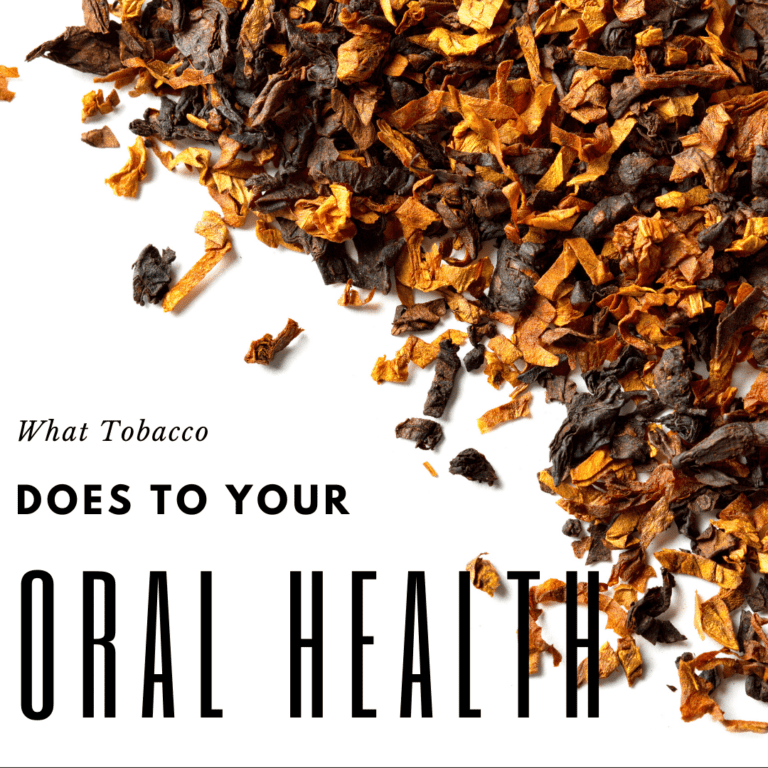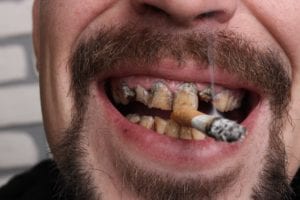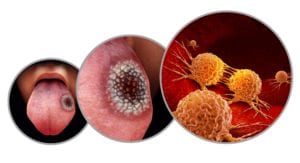What Tobacco Does to Your Oral Health

Tobacco use puts you at a much higher risk of developing a variety of health conditions. Apart from predominantly affecting your respiratory system and increasing your risk of developing lung cancer, chronic obstructive pulmonary disease (COPD), and general breathing problems, tobacco is also detrimental to your oral health. Not only does tobacco have the potential to contribute to a variety of oral health problems, but it can also make it harder to treat these conditions.
Tobacco use can take many different forms. Smoking cigarettes are one of the most common ways to use tobacco, however there are other forms including: smokeless tobacco, compressed dissolvable tobacco, cigars, tobacco pipes, hookahs, and electronic cigarettes. Although many people believe that hookahs and e-cigs are “healthier” than other forms of tobacco, they are still considered to be highly detrimental to your oral and overall health.
Tobacco use can affect your oral health in the following ways:
Premature Enamel Wear
Certain forms of tobacco, such as unprocessed tobacco leaves, cigars, and chewing tobacco, are composed of tiny, abrasive particles. The addition of saliva to these particles creates an abrasive paste that slowly breaks down your tooth enamel over time, leading to premature enamel wear. As your enamel becomes thinner, you may begin to experience tooth sensitivity to hot and cold foods. Since your enamel is also your protective layer, you will also put yourself at a higher risk of developing tooth decay.
Stains Teeth

In addition to prematurely wearing down your tooth enamel, tobacco use also stains your teeth. This can happen in a few ways. First, tobacco use causes excess plaque and tartar to accumulate on the surface of your teeth. As colored pigments from food and beverages get trapped, this can give your teeth a colored tint. Second, tobacco products contain certain ingredients like nicotine and tar, which are known to stain teeth. Nicotine causes yellowish stains, while tar tends to cause grey or black stains.
Leads to Gum Disease
Gum disease generally starts out mild as gingivitis and then advances to periodontitis if it is not effectively treated. However, people who use tobacco are more likely to develop periodontitis faster. This is due to the fact that tobacco interrupts the gum cells normal functioning while also restricting blood flow to the gums. The combination of reduced functioning and blood flow ultimately makes it easier for the infection to advance, while also making it harder to heal.
Slows Healing
Not only does reduced blood flow increase the risk of gum disease, but it also decreases your body’s ability to effectively heal itself. This is especially problematic if you need to undergo restorative dental treatments like oral surgery, extractions, or periodontal treatments. This can also limit your choice of restoration options for missing teeth, since bridges and dental implants are more likely to fail in people who use tobacco.

Increases the Risk of Oral Cancer
Oral cancer can affect various structures in the mouth such as the lips, cheeks, floor of the mouth, and hard and soft palates. It can also affect the sinuses and throat. While using tobacco doesn’t guarantee you will get oral cancer, it significantly increases the risk. In fact, smokers are six times more likely to develop oral cancer, while people who chew tobacco are fifty times more likely.






Recent Comments